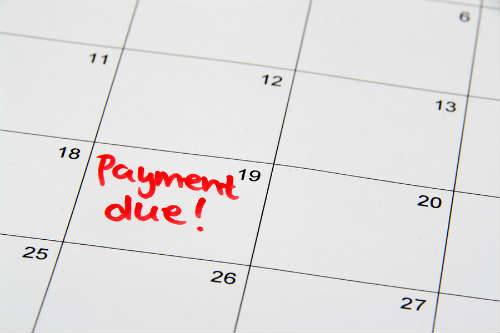Q: Should I pay off my credit card in full before the due date to improve my credit score?
A: The answer to that question is, yes, it is better to pay off your credit cards before the statement cycle ends, because you are absolutely correct that that zero balance is what will ultimately get reported to the credit bureaus. And as you likely know, 30 percent of your credit score is based on something called your “credit utilization rate,” meaning how much credit card debt have you charged versus how much credit you have available.
The majority of major credit card companies in the U.S., Discover card included I believe, reports whatever balance is shown on your statement. They report that to the three main credit bureaus: Equifax, Experian and TransUnion.
Read: Key differences between the Big 3 credit bureaus
They also report to my understanding on the statement date. So, if your statement date was say, the 15th of the month, whatever is shown in terms of a remaining balance on that date, on the 15th, that’s what will be reported by the credit card issuer and on that statement date.
Recognize, however, that it takes some time for the bureaus — TransUnion, Equifax and Experian — to update the information. It is usually around two weeks, sometimes it can be less, about one week or so. But for the purposes of illustration, let’s say that your statement date is the 15th and your due date for your payment is actually say, the 10th of the following month.
Well, you certainly don’t want to wait until that date, the 10th or even a couple of days before there if you are trying maximize your credit scoring. You know someone is going to pull your credit reports and generate a credit score. You always want to try to pay before the statement date, the cut-off date, because again that’s the date at which the information will be reported to the credit bureaus.
This is the case for the majority of credit card companies. For other credit card issuers and some smaller credit card issuers, they might report on a different cycle, some might report on a specific date each month and still others might report on the last day of the month.
Conventional wisdom though is that you want to keep those credit card balances as low as possible on the majority of your cards, in fact try to keep it at zero whenever possible, and that’s what will be reported to the credit bureau and that’s what will maximize your credit score.
If you have multiple cards however, keep in mind this little tip. While you want to keep those balances zeroed out, if that’s at all possible, you should of course go ahead and pay off those credit cards in full, but it’s a good thing in terms of the FICO credit scoring model to have one card that does in fact show a balance. Just make sure that that balance is very low, less than 10 percent of your card’s limit.
So, for example, if the card has $1000 limit, you want the balance shown on any given month to be less than $100. For many of you, you might just charge something nominal, maybe a gas tank full of gas or something that’s $30 or $40, and that you can allow to remain on your credit even after the statement date has run its course and has a cut-off, but then of course go ahead and pay off the bill before the due date.










